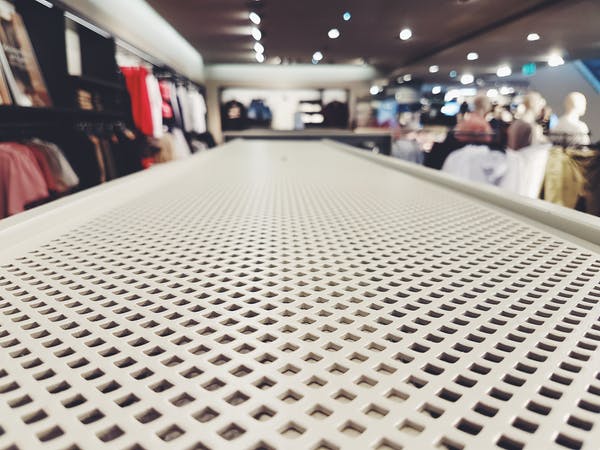

The clothing industry is quite distinct from other manufacturing industries. It runs with the intention that influences the change in existing lifestyles. The clothing industry is also known as an allied industry as it serves the purpose of bringing fashion into the limelight by producing different styles of clothing based on desire. This is why it’s important for aspirant fashion designers to understand this industry through a fashion designing diploma course. The course will highlight the flow of the fashion industry that goes through various stages- from procurement of raw materials, producing yarn or fabric, designing, construction and finally reaching the targeted market.
In India, the nature of the fashion industry is dynamic and is known for its rich cultural heritage, colourfulness, and gentility. The clothing industry in India is one of the largest segments of the capital goods sector. The Industry is capable of producing a wide range of clothing styles from casual wear to formal wear. However, this mass production of clothes also contributes to the mass production of dry waste in the country. Every year, the clothing industry generates an enormous amount of waste that pollutes the air, land, and water.
As wastage, and pollution concerns rise, many brands and manufacturers are taking a stand to tackle these challenges through sustainable fashion. This would mean building a clothing industry that can resolve subjects of concern, increase the efficient use of resources, improve recycling/upcycling, and reduce waste. With sustainability becoming a mainstream issue in the fashion industry, a fashion designing diploma course is revised to orient students to issues and solutions in the production of materials, fashion design, supply chain, and product life cycles.
Designers, brands, and manufacturers are striving more than ever before to create a more sustainable, healthier, and safer world through various creative innovations. Let’s explore some of the best and most creative innovations in fabric technology in India set to impact the clothing industry.
For decades cotton and other traditional mixed fabrics have been used for making clothes. But now, with ‘green fashion’ being the trend, we see the clothing industry slowly shifting from traditional fabrics and new-age plant-based fabrics like bamboo, bananas, lotus, eucalyptus, and other plant or agricultural waste.
Phool founded by Ankit Agarwal is a unique startup that uses flower waste from mosques and temples to create beautiful fabrics. The production process follows by separating petals and sun-drying them before taking them to the flower cycling process. Phool calls the bio–leather made from flower waste ‘Fleather’. The company aims to reduce the use of animal leather and pollution by using waste to make a more sustainable fabric for the clothing industry.
Another company striving for sustainability through plant-based products is Biomize founded by Anubhav Mittal. Biomize aims to tackle the problem of pollution by developing biodegradable, eco-friendly biosynthetic material using bamboo and Agri/forest waste. The materials produced by Biomize can be used in various applications such as textile fabrics, industrial, medical, and packaging.
A million tonnes of plastic waste is generated every year and only half of the waste gets recycled while the rest ends up in landfills. As we are all aware of the hazardous and detrimental impact plastic waste has on the environment, there is a great urgency to come up with solutions.
Several Indian enterprises in the clothing industry, like Trash to Treasure, Alcis Sports, Ecokaari, Polycycle, and RawCycle by RAW Pressery, are taking sustainable clothing initiatives by developing fabrics out of waste to reduce pollution and its impact on the environment. These enterprises take waste generated from factories, homes, and even the textile industry and then transform that waste into sustainable textiles, which can be used in making fashion garments.
The clothing industry generates over 10 million tons of textile waste every year. This waste is dumped in landfills, which will take 100 years to decompose. The effect of this wastage on the environment is dire.
Entrepreneurs and designers are taking steps to transform the clothing industry into a more sustainable operating model, by putting out new creative designs on the table to use textile waste for making fashion garments.
The Indian fashion industry is now embracing the principles of upcycling and repurposing. Several fashion designers and brands like The Second Life, Boro, etc are focusing on reusing old rags, broken beads, discarded buttons, and so on to make them into wearable designs.
In order to build a truly good clothing industry, we need more than incremental improvements to make the change. The good news is that today we can see the clothing industry in India slowly rising to a new era thanks to new innovations, technical breakthroughs, and creative minds.
With sustainable fashion becoming an integral part of the clothing industry, understanding the core of the issues is crucial to create impactful designs that differentiate you as a fashion designer from the rest. A fashion designing diploma course can help you learn different sustainable fashion design practices and how you can incorporate them into your work.
A fashion designing diploma course offered by JD Institute Of Fashion Technology will review the flow and process of the fashion industry. You will also get the chance to explore ways to incorporate sustainable design practices, make conscious fabric choices and plan for cyclability. If fashion designing is what excites you every day, visit Jd Institute to know more about the different courses you can choose to start your designing career.